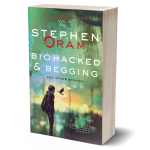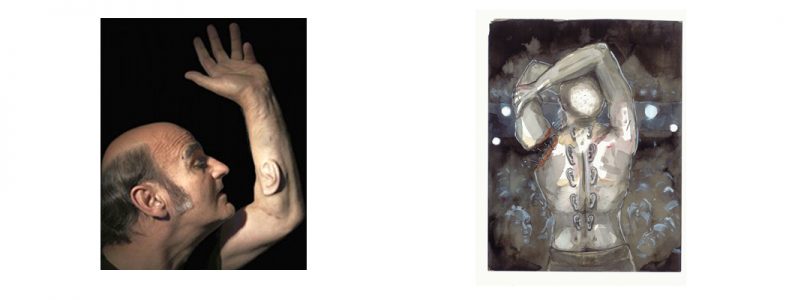I’m told that we have a shorter attention span than we used to. That we are at a moment in history when we want everything in bite-sized chunks. We make these micro-transactions in all sorts of ways. From the instantly ‘liked’ and instantly forgotten interactions to the chopping and changing between watching a film while flicking through our feeds.
Do we want bite-sized fiction too?
Well, I’m told we do. Actually, I’m told people enjoy reading tightly formed flash stories, such as those in my Nudge the Future collections – did I mention there’s a new one out? It’s called Biohacked & Begging.
In this new collection I play around with the notion of micro-transactions. I touch on such things as micro-voting, renting your home by the hour, and the zero-hours contracts of the future. It’s not all bleak (honest).
Short fiction is certainly not at all a new thing and I don’t think flash fiction will ever replace the full immersion of reading a novel, it’s a totally different experience.
Hopefully, these Nudge the Future collections fill a gap – they’re perfect for the commute to and from work, or for reading with your morning coffee.
Why not use them to create a small oasis of entertainment? Why not flit off to another place for a precious few minutes each day with a self-contained story?
And if they also prompt some pondering that’s great because don’t forget, The future is ours and it’s up for grabs…
 “The more we surround ourselves with technology, the more uncanny our lives become. Enter Stephen Oram: with Bradbury’s clear-sightedness and Pangborn’s wit, he pulls ways to live out from under modernity’s “cacophony of crap.”” Simon Ings, Arts Editor, New Scientist.
“The more we surround ourselves with technology, the more uncanny our lives become. Enter Stephen Oram: with Bradbury’s clear-sightedness and Pangborn’s wit, he pulls ways to live out from under modernity’s “cacophony of crap.”” Simon Ings, Arts Editor, New Scientist.
Find out more about Biohacked and Begging



